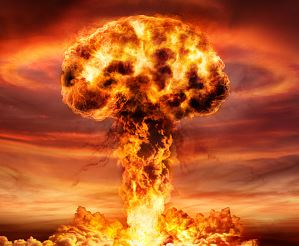
The US military has warned that Iran could produce enough highly-enriched uranium for a nuclear bomb in one year.
But it would take another three to five years to actually produce a “deliverable weapon that is usable,” a senior general told Congress. The warning came as Iran said it had produced its first significant batch of more highly-enriched uranium. Meanwhile, negotiations have resumed at the UN on a possible Iran sanctions resolution over its nuclear programme.
Speaking to the US Senate Armed Services Committee, two military officials said if Iran’s leadership decided to, enough highly-enriched uranium could be produced in one year to build a single atomic weapon. Lt Gen Ronald Burgess, the director of the Defense Intelligence Agency, said the centrifuges at Iran’s Natanz nuclear plant were producing low-enriched uranium and were not yet being used to produce the more highly-enriched uranium needed for weapons.
Gen James Cartwright told the committee that if Iran did move to produce the 90%-enriched uranium needed for a bomb, more time would be needed to actually build and test the weapon. “Experience says it is going to take you three to five years” to reach the stage of having a “deliverable weapon that is usable… something that can actually create a detonation, an explosion that would be considered a nuclear weapon.” Iran’s nuclear chief, Ali Akbar Salehi, said on Wednesday that 5kg (11 lbs) of uranium had been enriched at Natanz from 3.5% to the 20% needed to fuel a research reactor in Tehran.
President Mahmoud Ahmadinejad ordered further enrichment to begin in February after talks on a UN-brokered proposal for Iran to send its uranium abroad for enrichment broke down. Iran has defied five UN resolutions demanding that it stop enriching uranium. Some Western nations, led by the US, fear Iran may be trying to develop the capacity to produce nuclear weapons.
Iran says its nuclear programme is solely for civilian purposes. The US moves to gather support for a fourth round of sanctions against Iran over its nuclear work were bolstered by the nuclear security summit held in Washington earlier this week, says the BBC’s Barbara Plett at the UN in New York. Ambassadors from the US, Britain, France, Germany, China and Russia have resumed negotiations at the UN on possible sanctions.
Diplomats say China and Russia want something “much much weaker, much much narrower” than the other countries and China has not publicly said it would support sanctions, our correspondent reports. The UN ambassadors are discussing a text prepared by the Americans outlining possible measures in five areas: energy, shipping, finance, an arms embargo and punishing members of Iran’s Revolutionary Guard Corps, which oversees the country’s nuclear programme, our correspondent adds. Talks on the sanctions are expected to run for a number of weeks yet.

Be the first to comment